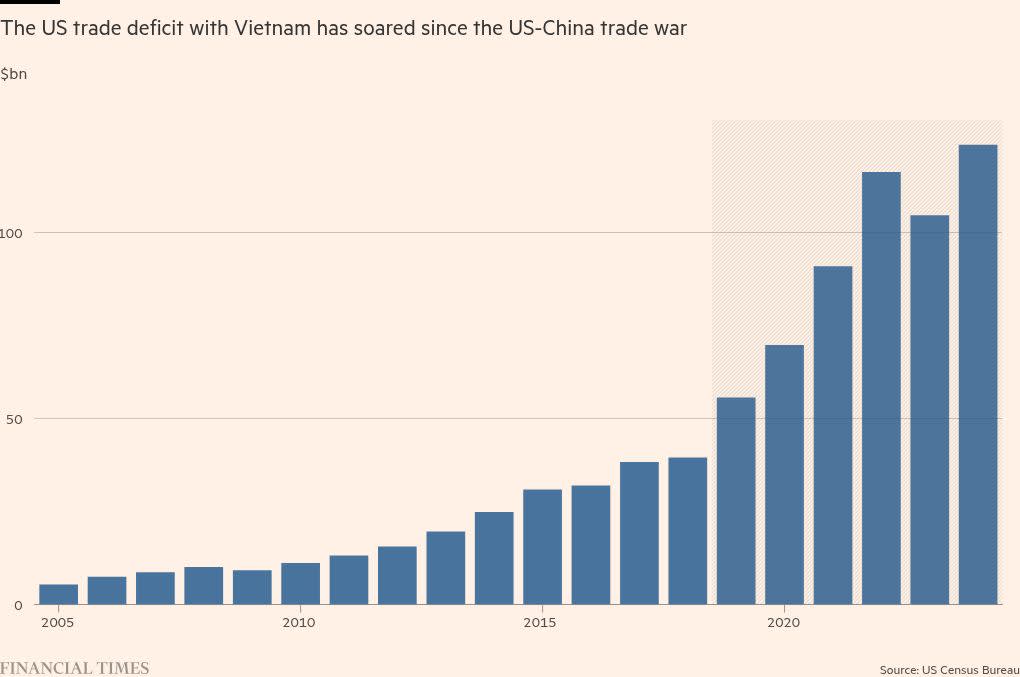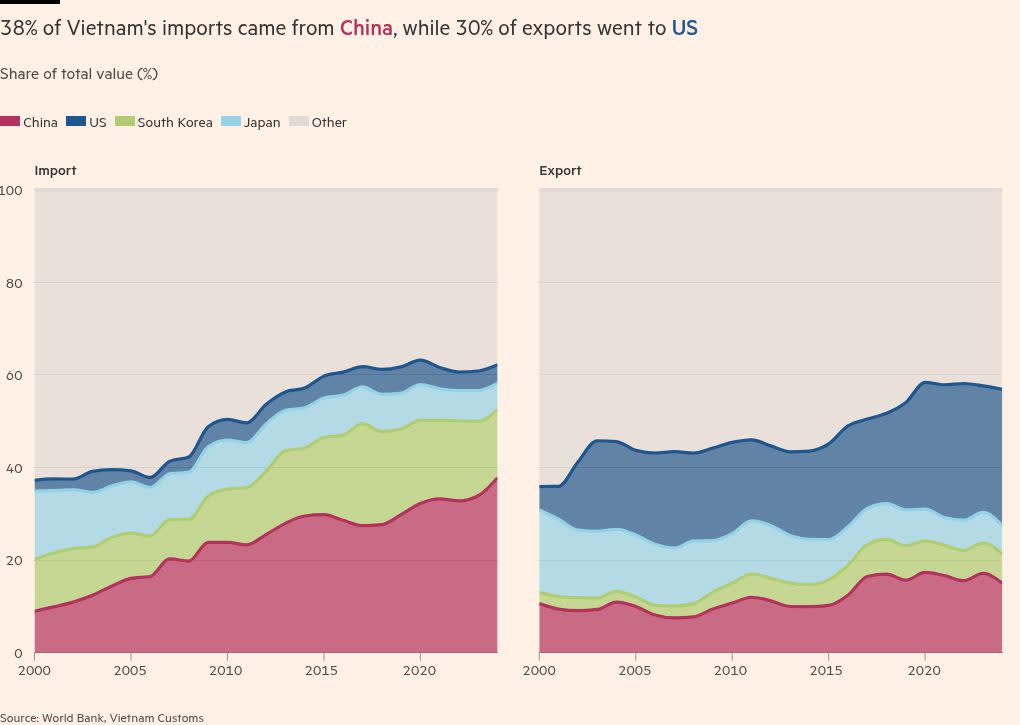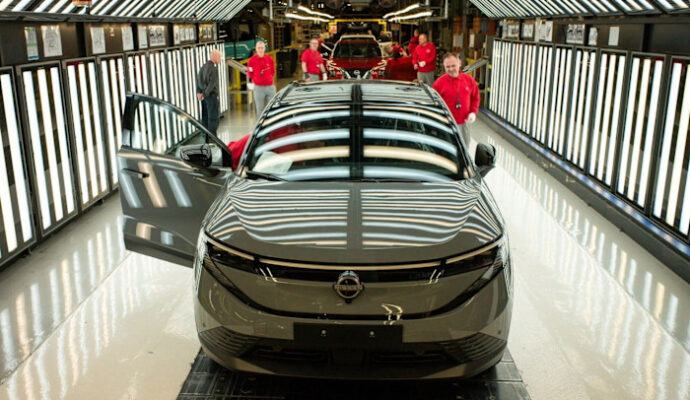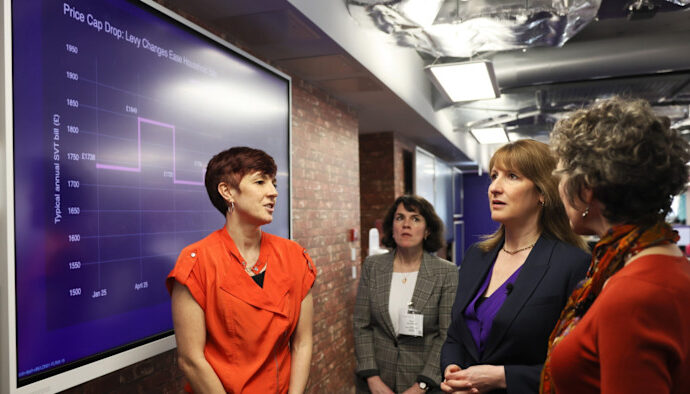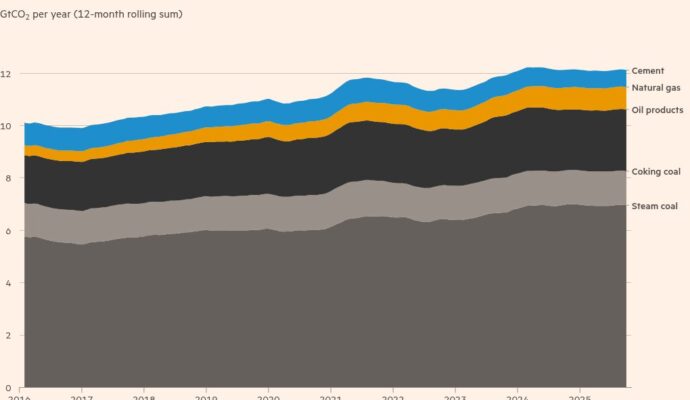Unlock the White House Watch newsletter for free
Your guide to what Trump’s second term means for Washington, business and the world
American companies are urging Washington to lower tariffs on Vietnam, arguing that the south-east Asian country has become a vital part of their “China plus one” diversification strategy.
Vietnam was one of the biggest winners from US President Donald Trump’s trade war in his first term as manufacturers shifted from China. Apple, Intel and Nike are among American companies that rely heavily on Vietnam.
As a result of that production shift, the south-east Asian country’s trade surplus with the US ballooned, crossing $125bn last year and ranking third after China and Mexico. The Trump administration imposed a 46 per cent tariff on Vietnam in April — one of the highest after China — before pausing the levy pending trade negotiations.
The American Chamber of Commerce in Hanoi, whose members include the Vietnamese subsidiaries of big investors such as Apple, suggested that the move could be counter to US strategic interests in south-east Asia, where it has been trying to diversify away from China.
“Vietnam has emerged as a valued partner of the United States in the context of diversifying supply chains,” the chamber said in a letter sent to officials in the US and Vietnam, according to a copy obtained by the FT. While the letter did not mention China, it added: “We urge the US government to consider this deficit trend as evidence of President Trump’s success during his first term in diversifying supply chains in the Indo-Pacific region. We urge the US to avoid retaliatory and sectoral tariff measures against the logical outcome of its own policy goals.”
The tariffs are a “critical issue” for US businesses in Vietnam as higher rates would “negatively affect our members’ businesses and customers, and the broader commercial relationship between our two countries”, the chamber said.
Vietnam is crucial to the supply chains of several American companies. It accounts for half of footwear production of Nike, which now plans to raise prices because of the tariffs. Analysts expect Apple to source two-thirds of AirPods from Vietnam by the end of the year.
The lobbying by American companies comes as countries around the world rush to finalise a deal with the US before the 90-day pause on tariffs ends on July 9. US and Vietnamese officials are set to meet for a third round of talks by mid-June, according to Hanoi.
A 46 per cent tariff would be devastating for Vietnam’s economy as the US accounts for nearly a third of its total exports. It would also affect new foreign investments coming into Vietnam.
Vietnam has promised to buy more American products, including Boeing planes and liquefied natural gas, and remove non-tariff barriers for US companies. It recently approved a Trump Organization golf project and hosted Eric Trump for talks on a new Trump Tower in Ho Chi Minh City — in moves that observers believe would help Vietnam in trade negotiations.
But one of the biggest pressure points from the US is on alleged trans-shipment of Chinese goods through Vietnam, which has in recent weeks vowed to increase scrutiny of such practices.
In a Senate hearing this week, commerce secretary Howard Lutnick said that even if Hanoi removed all tariffs and non-tariff barriers on American products, Washington would not lift its own levies on Vietnam as the country was a conduit for Chinese goods looking to avoid punitive US tariffs.
“They buy $90 billion from China, then they mark it up and send it to us,” Lutnick said. “They are just a pathway of China to us.”
Vietnamese officials said this week they were responding with “determination and goodwill” to issues raised by the US in trade negotiations. Trade data this week could add further pressure on Vietnam. Hanoi’s surplus with Washington surged to the second highest in April, overtaking Mexico, according to US data. Vietnamese data showed that its May exports to the US continued to rise.
In the letter sent to the two governments, Amcham urged co-operation between customs authorities in Vietnam and the US to address illegal trans-shipment — an idea that people familiar with the matter say is under consideration by both governments.
It also urged Vietnam to fast-track purchases of American products and introduce reforms in some sectors. The chamber recommended the “full liberalisation” of Vietnam’s power sector to attract investments.
“This would spur Vietnamese imports of American turbines, LNG facilities and fuel, wind infrastructure equipment, batteries, and services in financing, construction and engineering,” which the chamber said would address the trade imbalance.
